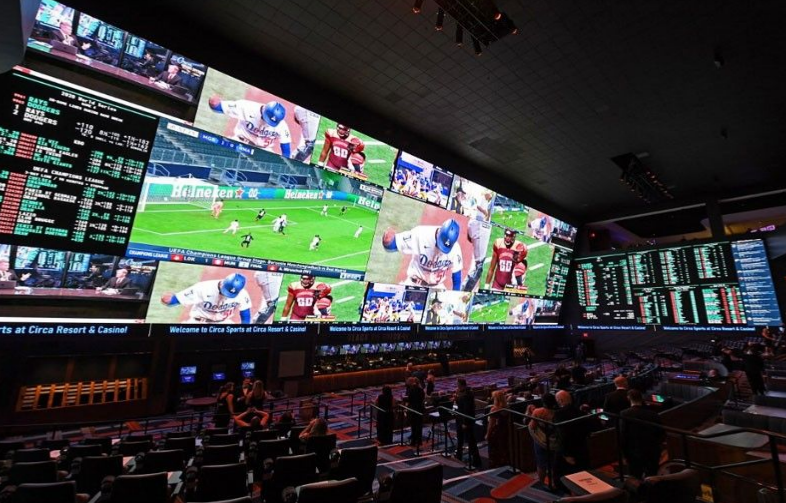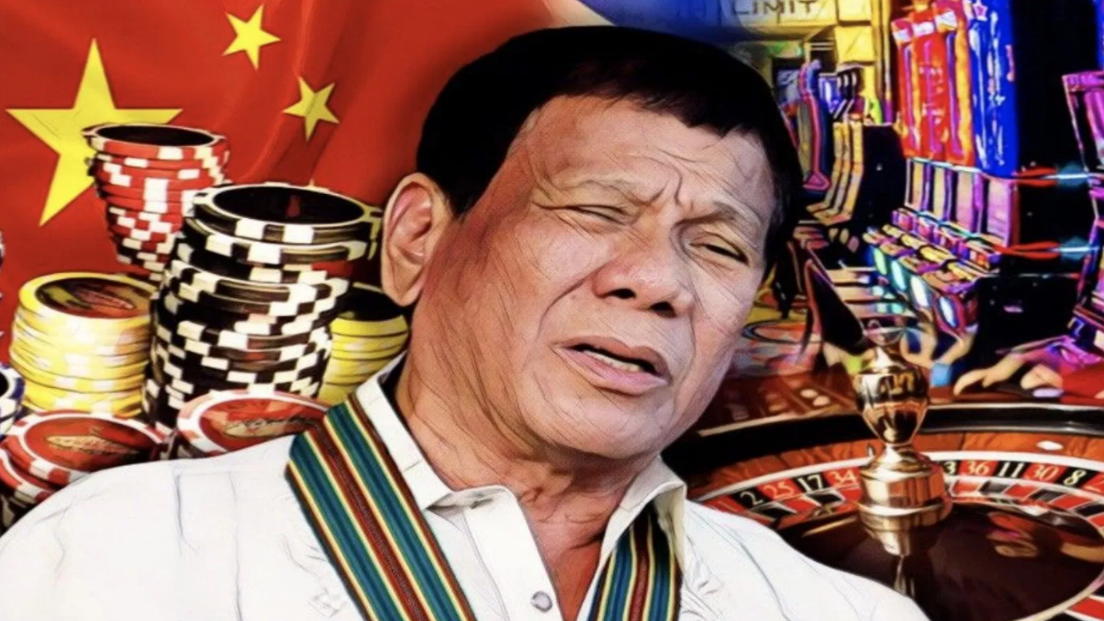In the Philippines, illegal sports betting can result in monetary penalties ranging from ₱5,000 to ₱500,000. Additionally, individuals involved can face imprisonment terms ranging from 1 year to a maximum of 40 years, depending on the severity of the offense.
Current Legislation on Sports Betting
The current legislation on sports betting in the Philippines primarily revolves around the provisions laid out in Republic Act No. 9287, also known as the Anti-Illegal Gambling Law.

Republic Act No. 9287
Republic Act No. 9287, enacted in the early 2000s, is one of the landmark legislations in the Philippines that criminalizes various forms of illegal gambling. The Act covers a broad range of activities, from traditional gambling games to the more contemporary forms, like sports betting.
- Scope: The Act’s main intention is to strengthen the existing laws against illegal gambling.
- Offenses and Penalties: Under this Act, individuals participating in, leading, or systematizing illegal gambling operations face various penalties, ranging from fines to imprisonment.
- Exemptions: While the Act is comprehensive, there are certain exemptions.
Specific Provisions on Sports Betting
Sports betting is a popular activity in the Philippines, and Republic Act No. 9287 addresses it in detail.
- Authorization: All sports betting activities must be sanctioned by a recognized government body. Unauthorized activities are considered illegal.
- Operational Guidelines: The Act prescribes specific operational guidelines.
- Online Betting: With the rise of online platforms, there are clear stipulations about their operations. These platforms must obtain the necessary licenses and adhere to guidelines set by authorities like PAGCOR.
- Match-fixing and Fraud: The Act is stern on fraudulent activities related to sports betting. Acts like match-fixing, using insider information, or manipulating game results can lead to severe penalties.
Penalties and Consequences
Illegal sports betting activities are met with severe consequences in the Philippines under the Republic Act No. 9287. The government has instituted a range of penalties, both monetary and in terms of imprisonment, to deter and punish those involved in such illegal activities. This Act is in place to maintain the integrity of sports, protect bettors, and ensure that gambling operations contribute fairly to the country’s economy.
Fines and Monetary Penalties
Violators of the Republic Act No. 9287 face hefty fines depending on the gravity of their offense.
- For Operators: Individuals or entities operating illegal betting rings can be fined anywhere from ₱50,000 to ₱500,000.
- For Bettors: Individuals caught betting on illegal platforms might face fines ranging from ₱5,000 to ₱50,000.
- For Establishments: Places that host illegal betting activities, like a clandestine betting ring, could face fines upwards of ₱200,000.
It’s also worth noting that the money acquired from these illegal activities is subject to confiscation by the government. This includes earnings, equipment, and any other assets associated with the illegal betting operation.

Imprisonment Duration and Terms
Apart from monetary penalties, imprisonment is another consequence that violators face.
- For Operators: Those organizing or leading illegal betting activities can face imprisonment ranging from 30 years to life, depending on the severity and scale of the operation.
- For Bettors: Individuals caught participating in illegal betting might face jail terms ranging from 1 to 5 years.
- Collusion with Officials: Government officials or employees found to be in collusion with illegal gambling operations face stricter penalties, with imprisonment terms potentially exceeding 40 years.
Consequences for Repeat Offenders
Repeat offenses indicate a blatant disregard for the law, and the Republic Act No. 9287 addresses this with escalated consequences.
- Heavier Fines: Repeat offenders can expect their fines to be doubled or even tripled upon subsequent violations.
- Extended Imprisonment: Those with previous convictions related to illegal betting activities might face extended jail terms, with some potentially facing life imprisonment.
- Additional Charges: Repeat offenders can also be charged with other crimes, like racketeering, which come with their own set of penalties.
Legal Avenues for Sports Betting
While the Philippines has stringent rules against illegal sports betting, the country also provides legal channels for enthusiasts to place their bets. These avenues ensure that bettors can indulge in their favorite activity without running afoul of the law. By using legal platforms, individuals can also have peace of mind, knowing that they are betting in a safe and regulated environment.

Licensed Betting Establishments
These are the brick-and-mortar locations where individuals can place bets on various sports events.
- PAGCOR-Operated Outlets: The Philippine Amusement and Gaming Corporation (PAGCOR) operates several betting outlets throughout the country. These are official locations where bettors can wager money on sports events.
- Authorized Franchisees: Apart from PAGCOR-operated outlets, there are franchisees that have obtained the necessary licenses to run betting establishments. They adhere to the same regulations as PAGCOR outlets.
- Race Tracks: For horse racing enthusiasts, licensed race tracks exist where they can bet on their favorite horses.
It’s vital to ensure that the establishment has the necessary licensing and is not operating under shady or unregulated conditions.
Regulations and Safety
Legal betting platforms, both online and offline, adhere to a set of regulations to ensure fair play and bettor safety.
- Licensing Requirements: Before operating, betting establishments must meet the criteria set by regulatory bodies like PAGCOR. This includes financial scrutiny, ensuring that the operators have the financial capability to payout winners.
- Fair Play Mechanisms: Legal avenues use systems to ensure that the odds aren’t rigged and the bettors have a fair shot at winning. This includes using recognized and impartial systems for generating odds.
- Data Protection: In the age of digital technology, protecting user data becomes paramount. Legal betting platforms adopt stringent data protection measures to ensure bettor’s personal and financial details remain secure.
- Betting Limits: To promote responsible gambling, many legal platforms impose betting limits, ensuring that individuals don’t go overboard and bet beyond their means.
Comparative Analysis
The sports betting landscape varies significantly across Asian countries. While some nations adopt a more liberal approach, others have stricter regulations and penalties. Understanding the differences provides insights into how the Philippines stands in comparison and the implications of its regulations on the sports betting scene.
Penalties in the Philippines vs. Other Asian Countries
The following table illustrates a comparison of penalties for illegal sports betting in the Philippines and a selection of other Asian countries:
| Country | Monetary Penalty | Imprisonment | Regulatory Body |
|---|---|---|---|
| Philippines | ₱5,000 – ₱500,000 | 1 – 40 years | PAGCOR |
| Singapore | S$5,000 – S$200,000 | Up to 6 years | Singapore Totalisator Board |
| Malaysia | MYR 5,000 – MYR 200,000 | 6 months – 5 years | Common Gaming Houses Act 1953 |
| Thailand | THB 1,000 – THB 5,000 | Up to 3 years | Government Lottery Office |
| South Korea | KRW 5 million – KRW 50 million | Up to 3 years | National Gambling Control Commission |
It’s evident that while the Philippines has a broad range in terms of fines, its imprisonment terms are relatively stricter than some other countries.
How Strict Enforcement Impacts the Sports Betting Scene
- Consumer Behavior: Strict penalties typically dissuade casual bettors from engaging in illegal betting activities. This might result in either a decrease in overall betting activities or a shift towards legal platforms.
- Market Evolution: A stringent regulatory environment could encourage international sports betting platforms to obtain licenses and operate legally in the Philippines. This helps in providing bettors with a wider array of safe and secure betting options.
- Sports Integrity: Strict enforcement can deter match-fixing and other fraudulent activities, thus maintaining the integrity of sports competitions.
- Economic Impact: By pushing bettors towards legal avenues, the government can ensure that a portion of the revenue generated from betting goes back into the economy in the form of taxes and licensing fees.
- Public Perception: Enforcing sports betting regulations can shape public perception.
Impact of Illegal Sports Betting
Illegal sports betting, a prevalent issue in many parts of the world, carries with it various repercussions that extend beyond just the immediate participants. The effects ripple through the economy, influence public perception, and even manifest in social consequences. By examining these implications, stakeholders and policymakers can better address the challenges and devise strategies to mitigate the negative impact.
Economic Implications
- Loss of Tax Revenue: When betting takes place outside the regulated environment, governments lose out on significant revenue from taxes and licensing fees. Legal betting avenues contribute to national economies by channeling funds into public projects and welfare.
- Unregulated Cash Flow: Illegal betting often involves large sums of money changing hands without any oversight. This unaccounted flow of money can lead to financial anomalies and might even facilitate money laundering activities.
- Loss of Jobs: Legal betting establishments create jobs, from customer service roles to technical positions. With a shift towards illegal platforms, potential job opportunities in the regulated betting industry diminish.
- Market Distortions: Illegal betting can distort the market by offering skewed odds or engaging in unfair practices, undermining the principles of fair competition. This can deter international operators from entering the market, depriving the economy of potential foreign investments.
Social Consequences and Public Perception
- Addiction and Problem Gambling: Illegal betting platforms may not implement responsible gambling measures, leading to an increase in gambling addiction. With no checks in place, individuals are at a higher risk of developing problematic betting behaviors.
- Sports Integrity Issues: One of the most significant concerns with illegal sports betting is the potential for match-fixing.
- Criminal Activities: Illegal betting often goes hand in hand with other illicit activities such as loan sharking, threats, and sometimes even physical harm. These activities create an environment of fear and can have a severe impact on local communities.
- Public Distrust: The public’s perception of sports can change drastically due to illegal betting and associated scandals.
- Stigma Surrounding Betting: While betting can be a harmless pastime for many, the association with illegal operations and the potential adverse outcomes can lead to a societal stigma around sports betting in general.

